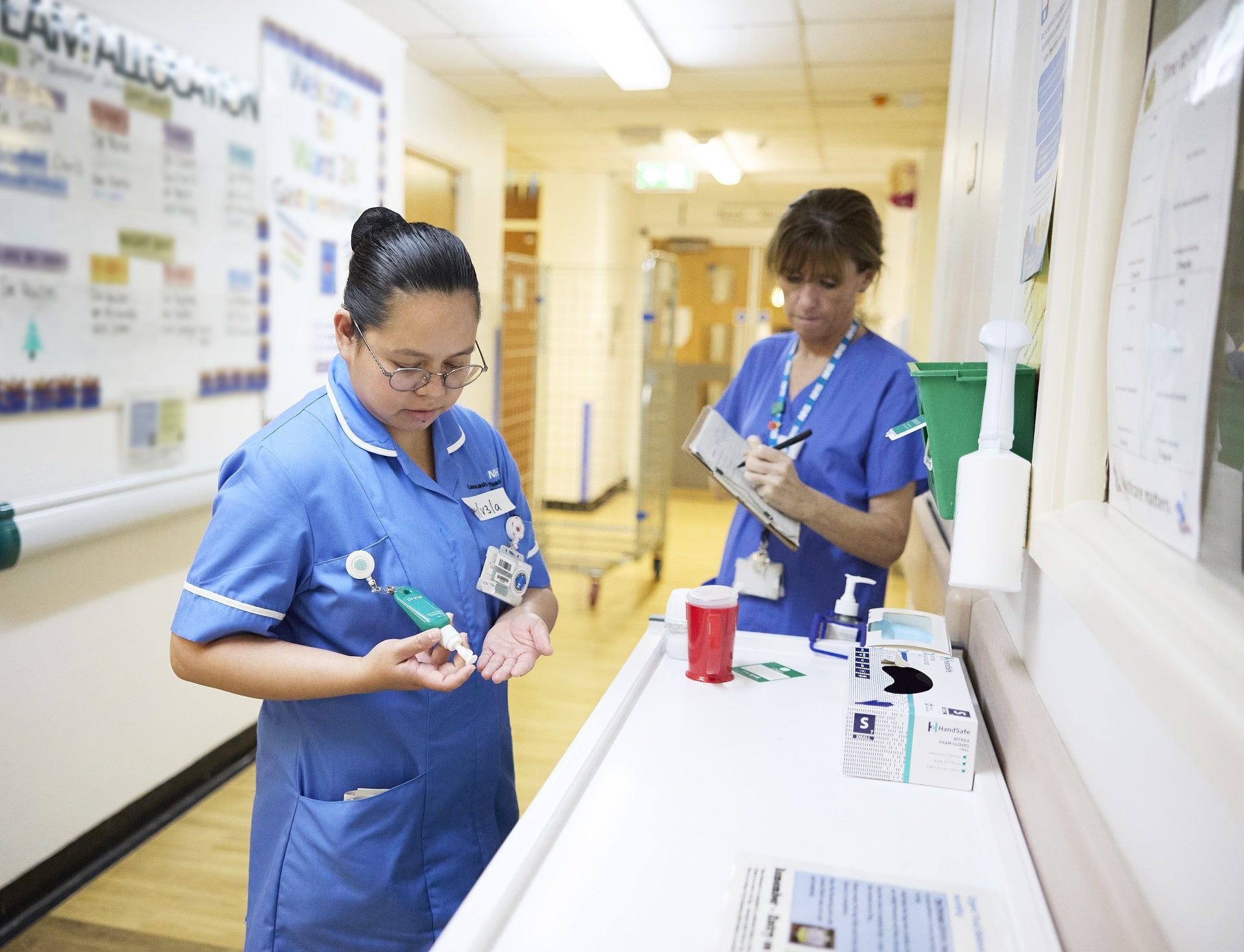
Following a first-of-its-kind clinical trial conducted at Lancashire Teaching Hospitals, Primel has announced use of its Active Hand Shield technology will improve patient safety, address the current challenges of hand hygiene compliance by healthcare workers, and reduce the cost and burden of healthcare-associated infections.
The trial of Primel Active Hand Shield (PAHS) demonstrated an average of 91% higher antimicrobial efficacy after one hour, compared to the current standard of care hand sanitiser at 15 minutes. This is the world’s first-hand hygiene product that has both a broad spectrum of antimicrobial activity and long lasting (residual) efficacy.
Unrivalled efficacy results include the first broad spectrum efficacy with sustained protection, that is effective against pathogens such as MRSA, Clostridium difficile and norovirus. This highlights the evolution of Primel’s infection prevention solution and provides an opportunity to review national and international health policies for safer hand hygiene.
Professor Mark Wilcox said: “With hospital-acquired infection rates such as Clostridium difficile currently increasing annually within UK hospitals, and the challenges of spreading antimicrobial resistance, new solutions are needed to cut infection risks in healthcare settings.
“The results from the Lancashire Teaching Hospital trial show Primel Active Hand Shield’s superior efficacy over current alcohol hand hygiene sanitisers that are in widespread use in the NHS. This novel hand hygiene product offers the chance to break the infection transmission cycle and, importantly, provide increased safety for patients, healthcare professionals and visitors. Going forwards, infection prevention guidelines need to consider this novel way of improving hand hygiene.”
The trial results at Royal Preston Hospital demonstrated that the application of PAHS provides users with superior protection against a broad spectrum of pathogens, including some of the most drug-resistant microbes, on immediate application and over a continuous period, as well as showing less transfer of pathogens to surfaces, compared to a traditional hand sanitiser.
After immediate application, Primel Active Hand Shield was 98% effective, and after one hour still 92% effective, therefore maintaining protection on hands better than a standard alcohol-based hand sanitiser, which dropped its efficacy considerably from 97% to 68%, respectively in 15 minutes.
In addition, Primel Active Hand Shield proved it was on average 76% more effective than traditional hand sanitisers in reducing the transmission of microbes from contaminated hands to a surface.
Dr David Orr, Director of Infection Prevention and Control with the Trust, added: “In collaboration with Primel, we developed this trial to measure the immediate and residual antimicrobial activity on the hands of staff treated with Primel Active Hand Shield in comparison with an alcohol-based hand sanitiser.
“The results from this trial have been very encouraging, and the feedback from our staff was very positive.
“Poor hand hygiene compliance is a widespread problem in healthcare services and is nationally reported to be between 40% to 60%. The deployment of this product could dramatically reduce the infection control risk associated with poor hand-hygiene compliance, because, even if hands are decontaminated less frequently than currently recommended, the product will continue to provide protection.
“My hope is that we can expand the use of Primel’s product more widely across the hospital and therefore start to tackle the challenge of bringing down HAI rates and importantly provide better safety and security for our patients .”
“This trial has demonstrated that Primel Active Hand Shield offers superior protection to the more traditional alcohol-based hand sanitisers thanks to our key differentiator: increased sustained efficacy against a broad spectrum of pathogens,” says Arjun Luthra, CEO of Primel.
“By offering this innovative technology, our solution adds an additional dimension to hand hygiene, by allowing users to reduce the transmission of pathogens on surfaces by their touch to further enhance the effective stopping of the spread of pathogens."







